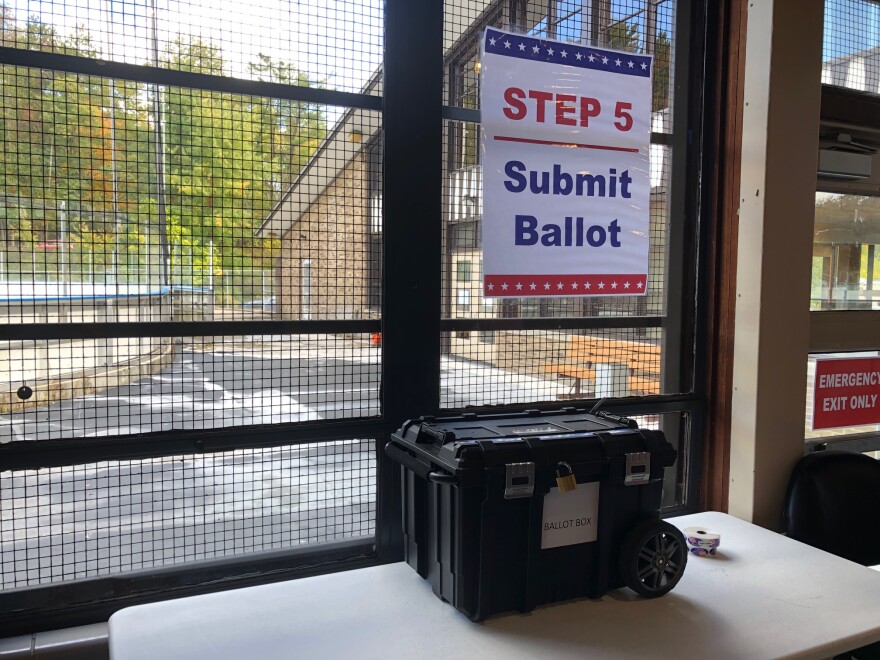On today's program: A nationwide project tackles voter confusion in the lead up to the general election; a research project is developing new guidelines to help break the cycle of opioid prescriptions in dental settings; and Pittsburgh musician Ernie Hawkins remembers blues legend Reverend Gary Davis.
Three weeks before the election, some still have questions about the voting process
(00:00 — 6:03)
Voters are searching for accurate information about the candidates, and the entire voting process this election season. Just three weeks before November 3, some still have questions about proper procedure for voting by mail and the safeguards at polling places.
“In my more than 20 years in both planning election coverage and being in newsrooms on election nights from state, to local, to national, I have never, ever seen the amount of questions, confusion as now,” saysKim Palmiero, the CEO and Editor-in-Chief ofPostindustrial, one of a coalition of newsrooms across the nation investigating tips as part of ProPublica’sElectionland project.
She says the purpose of the project is to deal with the issues voters face in real time, helping them cut through the confusion caused by a mostly mail-in election. She also says county elections offices are doing the best they can to counter misinformation.
“They are trying to make it as clear as they can, and I think that those who are voting really just have to take extra care to take their civic duty very, very seriously,” Palmiero says.
Reducing opioid prescriptions in dental settings requires prescribers to “change their practice patterns,” says Pitt professor
(6:09 — 11:36)
Preliminary numbers from the state Department of Health indicate 4,348 Pennsylvanians died from drug overdoses last year. According tothe CDC about one of every three fatal overdoses nationwide involves prescription opioids. Many of those prescribed painkillers came from physicians, but some might have been prescribed by dentists.
Dentists prescribe12 percent of immediate release opioids (like hydrocodone, oxycodone, and morphine) in the United States, behind only family physicians, who prescribe 15 percent of IR opioids, says the American Dental Association.
Researchers at the University of Pittsburgh recently received agrant from the U.S. Food and Drug Administration to try to curb opioid prescribing in dental settings.Dr. Deborah Polk, an assistant professor of dental public health at the University of Pittsburgh School of Dental Medicine and a psychologist who studies health behaviors, is one of the project’s principal investigators. She says the grant will help researchers create evidence-based resources prescribers can reference when deciding on pain management strategies for their patients.
The project is “taking the next step and not just putting this out in a one study at a time kind of fashion, but we’re really gathering all of the information together in a very organized and systematic way,” she says.
Exposing doctors and dentists to new methods of pain management could be key for curbing opioid prescriptions in dental settings.
“I think that, just like all of us, providers develop habits. And there’s a whole technology and science behind how to break habits,” Polk says. “And then also provide guidance to dentists specifically about how to change their practice patterns.”
Iconic blues musician Reverend Gary Davis’s Pittsburgh ties chronicled in new project
(11:41 — 18:00)
As a teenager in Pittsburgh,Ernie Hawkins discovered the music of the Reverend Gary Davis, an iconic figure in the history of the blues. Upon graduating high school in 1965, Hawkins went to New York City and began studying with Davis. As their friendship grew, Davis accompanied Hawkins back to Pittsburgh several times, and on one of those trips, Ernie Hawkins borrowed a tape recorder.
Those recordings provide an intimate portrait of a true American original and are now available in a three CD set titled “See What The Lord Has Done For Me.” 90.5 WESA’s Bob Studebaker spoke with Ernie Hawkins about the legacy of Reverend Gary Davis.
The Confluence, where the news comes together, is 90.5 WESA’s daily news program. Tune in weekdays at 9 a.m. to hear newsmakers and innovators take an in-depth look at stories important to the Pittsburgh region. Find more episodes of The Confluence here or wherever you get your podcasts.






